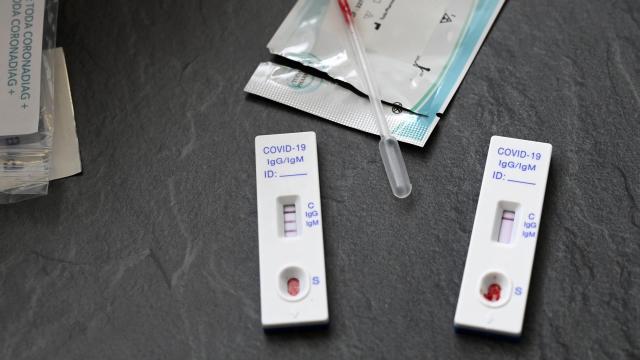New research this week seems to affirm the suspicion that the coronavirus can infect many parts of the human body, not just our respiratory system. It also found that the virus can sometimes linger in the body even after a person’s initial symptoms have abated. The preliminary findings may also shine a light on the complex chronic condition known as long covid that some survivors experience.
SARS-CoV-2 is considered primarily a respiratory virus, much like influenza or other human coronaviruses. In mild cases, its acute symptoms tend to involve the upper respiratory tract, while more serious cases are often associated with lung infection and pneumonia. But evidence from the lab and in patients has suggested that the virus can travel throughout the body and infect other tissues, too, thanks to the receptors it uses to hijack cells. Recently, for instance, scientists found evidence that the coronavirus can readily infect fat and immune cells.
The scientists behind this new research, mostly from the National Institutes of Health, say theirs is the most comprehensive look so far at how well the coronavirus can infect the various parts of the human body and brain. To do this, the researchers performed complete autopsies on 44 people who had been infected with the coronavirus. In all but five cases, the infection was directly implicated in the person’s death.
Overall, the team found copious signs of the coronavirus beyond the respiratory tract, both early and late into the infection. Its presence was definitely highest in the airways and lungs. But they also found viral RNA in the cardiovascular tissue of nearly 80% of patients; in the gastrointestinal tissue of 72% of patients, and in the muscle, skin, adipose (fat), and peripheral nervous tissue of 68% of patients. Across all 85 body parts and bodily fluids they studied, the virus could be found — at least some of the time — in 79 of them, including the brain. And they found traces of viral RNA throughout the body and brain months after symptoms had begun, up to 230 days in one patient’s case.
“Our data prove that SARS-CoV-2 causes systemic infection and can persist in the body for months,” the authors wrote in their paper, which was released as a preprint Sunday but is under review for publication in the journal Nature, according to Bloomberg News.
There are important limitations to this research. For one, the cases obviously tended to involve people severely ill with covid-19. But even in the few cases where someone had mild or no covid-related symptoms, the virus could still be found throughout the body, the authors noted. The study was also conducted between April 2020 to March 2021, a period of time when relatively few people were vaccinated. So it’s possible that those with some immunity may prevent the virus from infecting the body as thoroughly as it did in these patients (there was no mention of anyone being vaccinated in the paper). The emergence of several new variants of the virus, such as Delta and Omicron, since March may further complicate the picture.
All that said, the findings give us a clearer picture of how acute infection by SARS-CoV-2 works and how it could continue to cause trouble after the initial illness seems to resolve. Some experts believe that at least some cases of long covid can be attributed to persistent infection. But while these findings provide strong evidence that long-term infections do happen, they also raise new questions.
For instance, the team found little evidence that the presence of the virus outside the lungs was associated with direct inflammation or other virus-related injury to cells, even in persistent infections. That’s key because inflammation is one of the most common ways that the body can damage itself chronically, and many experts believe that it plays a major role in long covid symptoms. In some cases of persistent infection, the authors noted, the virus may have been too defective to keep replicating, which may explain why the body didn’t respond to it like a typical infection. This finding doesn’t exclude the possibility that the virus is still causing harm when it lingers in the body, but it adds a new wrinkle to the mystery of long covid that scientists will have to keep studying.
